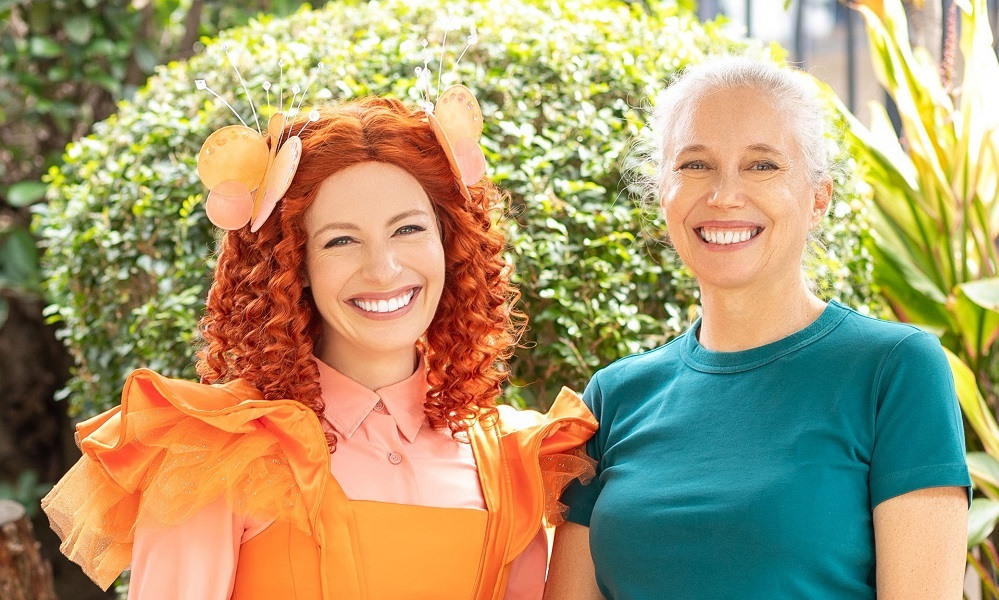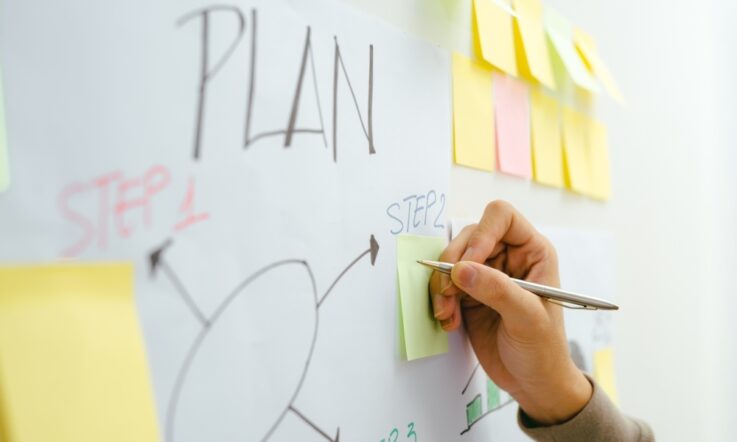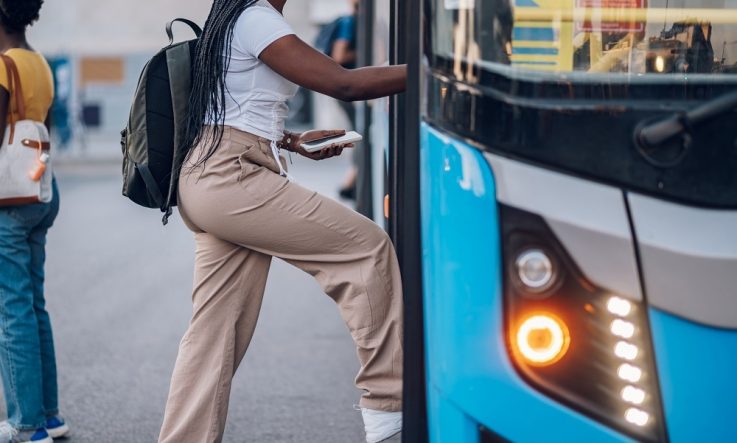‘No-one can successfully learn if they are viewed as a collection of disabilities and things that they can’t do. Successful learning is built on people recognising your abilities and strengths and helping you to build on them.’ Sue Lowry is the latest recipient of the 2023 Telstra ARIA Music Teacher Award. Here we find out more about the impressive music program she’s built at her Queensland special school.
Each year, the ARIA Awards celebrates the integral role that music teachers play in shaping the aspirations of young musicians and their communities, honouring them with the Telstra ARIA Music Teacher Award.
At the end of last year, Sue Lowry was recognised for her incredible work teaching music at Southport Special School in Queensland, where she provides quality music education to students with significant intellectual and physical disabilities.
As noted by award co-founders, The Song Room, ‘Her music program is designed and adjusted to the unique needs, skills, and abilities of each individual student, ensuring the benefits of music education are accessible to all. Sue’s music program… has been shown to improve engagement, self-esteem, confidence, sense of belonging and social connectedness …’
A trained opera singer and qualified teacher, Lowry has over 20 years’ experience with special needs students. She has been running the music program at Southport Special School since 2013 – a role she was initially reluctant to take on.
‘… I was an opera singer who did a few hours school teaching on the side, then at other times I was a special needs teacher who did singing on the side. I actively resisted combining the 2,’ she tells Teacher.
When she did agree to the role, she did so at a time when music lessons were being filled by class teachers with limited to no musical training. ‘I began with no classroom and instruments on a trolley,’ she recalls.
In the decade since, Lowry has transformed the school’s music program. Now, in a dedicated music space, her 220+ students are studying the same scope and breadth of music as their mainstream peers, with access differentiated via the Australian Curriculum General Capabilities.
‘Students can experience the joy of playing timpani while learning about the orchestra, or the bass guitar while releasing their inner rock god. Students can learn about the elements of music, and how to read and write musical notation.’
‘For a student with profound physical disability, reaching out and motor planning to use her fingers to pluck the strings of a bass guitar which is amped to the max is empowering.’
In addition to regular classes, other initiatives include individual tuition opportunities, a steel drum band, a ukulele group, vocal groups, a singing choir, and 3 African drum ensembles – of which the No.1 Ensemble has won trophies in the mainstream section of the Gold Coast Eisteddfod and National Percussion Eisteddfod.
Most importantly, Lowry’s classes improve the students’ lives in ways that go beyond just music – something that the students and their families see the benefits of.
‘Last year, 3 of our drummers were playing at a Rotary dinner,’ she explains. ‘After their performance… I asked the young drummer next to me if he was enjoying his meal, he smiled, said ‘yes’, and gave me the thumbs up. His mother said that this was the first time her 13-year-old son and her had ever been out to dinner together… before he started at Southport Special, he wouldn’t have coped and would have run off...’
Achieving these outcomes requires close attention to student needs and catered learning approaches, which Lowry credits to the class setup at Southport Special. ‘Small class sizes and high student/staff ratios afforded by a special school allows us to give our students the time and the focused attention for the individualised needs of our students.’
That’s important when, even within the one class, you have students with unique needs and varying capabilities.
‘In the prep class there may be students learning to sing new songs and play simple rhythms, there may be students whose triumph is finding the grip to hold a drumstick and whack it against a drum, there may be a student who makes a new and different vocalisation or their first recognisable word into the microphone.’
To help her understand the best way to teach each student, she has immersed herself in the science of early cognitive and communicative development. That allows her to better understand how the students are affected by disability and why they learn the way the do – something she says she can always have at the back of her mind while teaching.
While helpful, Lowry says what that information doesn’t tell you is who the students are. ‘That will only be achieved by greeting them with an attitude of, “Hello. Who are you and what are your gifts and talents?”
‘No-one can successfully learn if they are viewed as a collection of disabilities and things that they can’t do. Successful learning is built on people recognising your abilities and strengths and helping you to build on them.’
When you deliver lessons, how do you adjust your approach for students with additional or unique needs?
Is there somewhere in your school you can go to get support for students with additional needs. Do you know the systems in place for getting this support?
Sue Lowry tells us that while understanding student limitations helps us deliver our lessons effectively, we can’t let our preconceived ideas of what they can’t do limit our expectations of what they can achieve. Are you encouraging every student to achieve their full potential?



